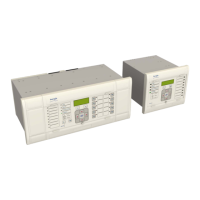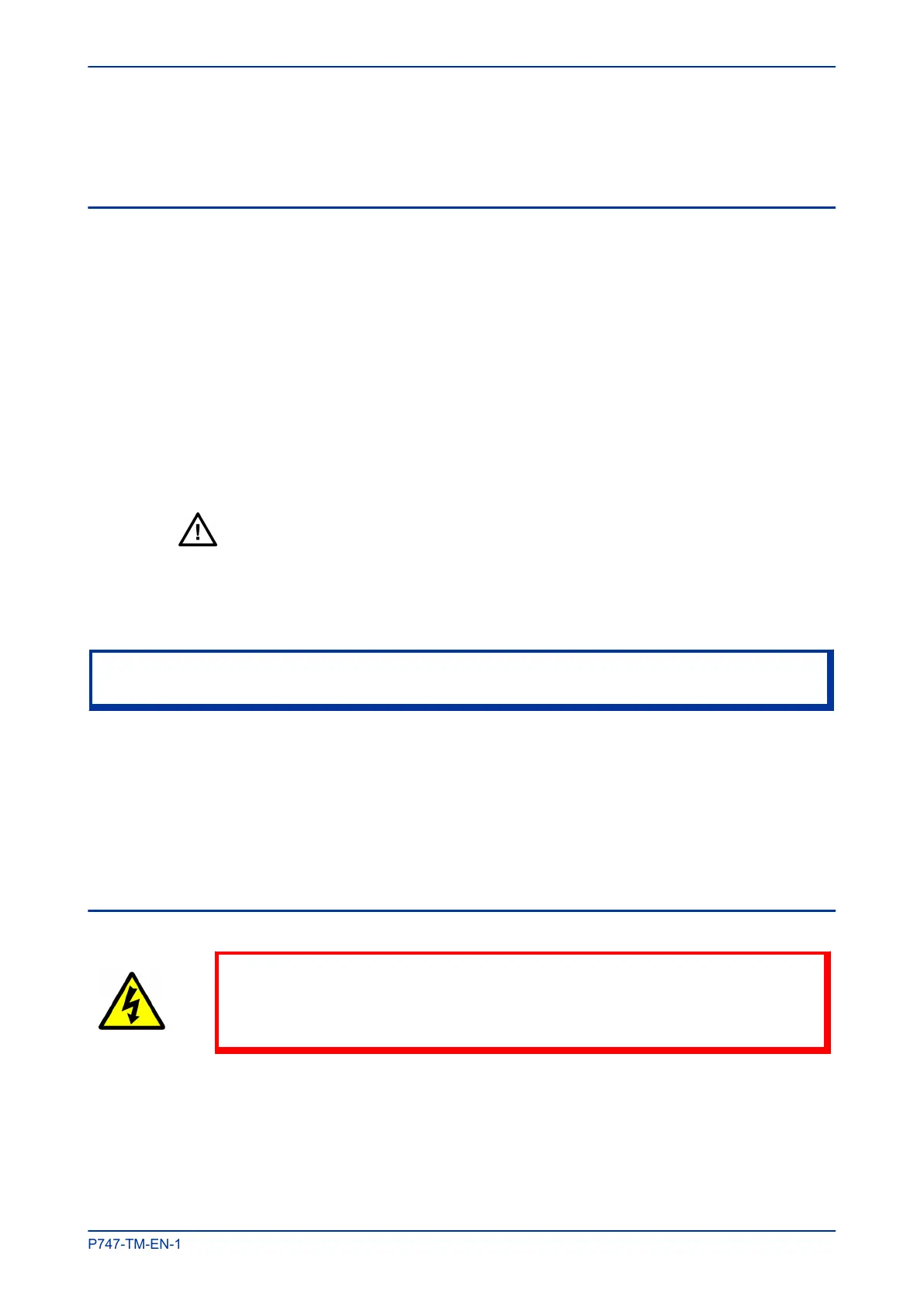Although it is possible to carry out recalibration on site, this requires special test equipment and software.
We therefore recommend that the work be carried out by the manufacturer, or entrusted to an approved
service centre.
2.7 CHANGING THE BATTERY
Each IED has a battery to maintain status data and the correct time when the auxiliary supply voltage fails.
The data maintained includes event, fault and disturbance records and the thermal state at the time of
failure.
As part of the product's continuous self-monitoring, an alarm is given if the battery condition becomes poor.
Nevertheless, you should change the battery periodically to ensure reliability.
To replace the battery:
1.
Open the bottom access cover on the front of the relay.
2. Gently remove the battery. If necessary, use a small insulated screwdriver.
3. Make sure the metal terminals in the battery socket are free from corrosion, grease and dust.
4. Remove the replacement battery from its packaging and insert it in the battery holder, ensuring correct
polarity.
Only use a type ½AA Lithium battery with a nominal voltage of 3.6 V and safety
approvals such as UL (Underwriters Laboratory), CSA (Canadian Standards
Association) or VDE (Vereinigung Deutscher Elektrizitätswerke).
5. Ensure that the battery is held securely in its socket and that the battery terminals make good contact
with the socket terminals.
6.
Close the bottom access cover.
Note:
Events, disturbance and maintenance records will be lost if the battery is replaced whilst the IED is de-energised.
2.7.1 POST MODIFICATION TESTS
To ensure that the replacement battery maintains the time and status data if the auxiliary supply fails, scroll
across to the DATE AND TIME
cell, then scroll down to Battery Status which should read Healthy.
2.7.2 BATTERY DISPOSAL
Dispose of the removed battery according to the disposal procedure for Lithium batteries in the country in
which the relay is installed.
2.8 CLEANING
Warning:
Before cleaning the device, ensure that all AC and DC supplies and transformer
connections are isolated, to prevent any chance of an electric shock while
cleaning.
Only clean the equipment with a lint-free cloth dampened with clean water. Do not use detergents, solvents
or abrasive cleaners as they may damage the product's surfaces and leave a conductive residue.
MiCOM P747 Chapter 15 - Maintenance and Troubleshooting
P747-TM-EN-1 377

